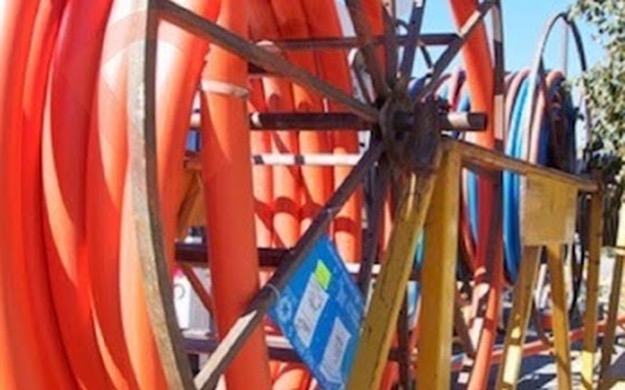
A bill to raise California’s minimum broadband speed standard and subsidise fiber to the premise infrastructure was blessed by the California senate’s appropriations committee yesterday. But the bill was amended and the changes haven’t been published yet. Two other bills that would have put emergency preparedness and response obligations on all Internet service providers were killed behind closed doors by senate leadership.
Senate bill 1130, authored by Lena Gonzalez (D – Los Angeles), would raise the eligibility standard for broadband infrastructure subsidies from the California Advanced Services Fund (CASF) to 25 Mbps download/25 Mbps upload speeds, from the current pathetic level of 6 Mbps down/1 Mbps up.
Any community, or area within a community, that lacks broadband service at or above the eligibility standard – 6/1 now, maybe 25/25 soon – would be able to get money from CASF to upgrade broadband infrastructure to a higher service. Now, that level is an equally pathetic 10 Mbps down/1 Mbps up, which has allowed Frontier Communications to take millions of dollars from CASF for marginal DSL upgrades. Much of the arm wrestling over SB 1130 is about what the new construction standard would be – it began at 100 Mbps down and up, and has since slid to 25 Mbps down/3 Mbps up. Which is lower than the eligibility standard. Yesterday’s amendments might have resolved that paradox. Might.
SB 1058, by Ben Hueso (D – San Diego) and SB 1069, by Hannah-Beth Jackson (D – Santa Barbara) were aimed at solving some of the problems that have plagued emergency officials during wildfires and public safety power shutoffs during the past few years. Among other things, both would have treated all ISPs the same. Cable companies, mobile carriers and others that have carved out comfortable privileges and immunities for themselves, usually with big cash payments to lawmakers. They opposed SB 1058 and SB 1069 and may have gotten their money’s worth yesterday.
Cable companies, including Charter Communications and Comcast, are using their Sacramento lobbying front to oppose the higher standards in SB 1130 as well. They want to block any hint of a threat to their high speed broadband monopolies. The next stop for SB 1130, whatever the amended version turns out to be, is a vote by the full California senate.
